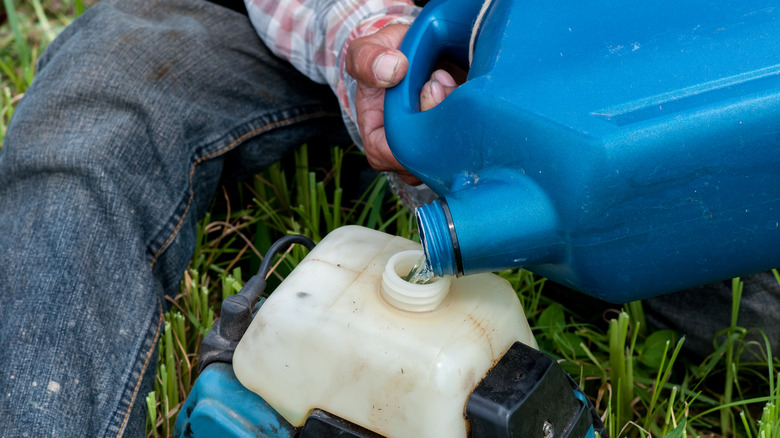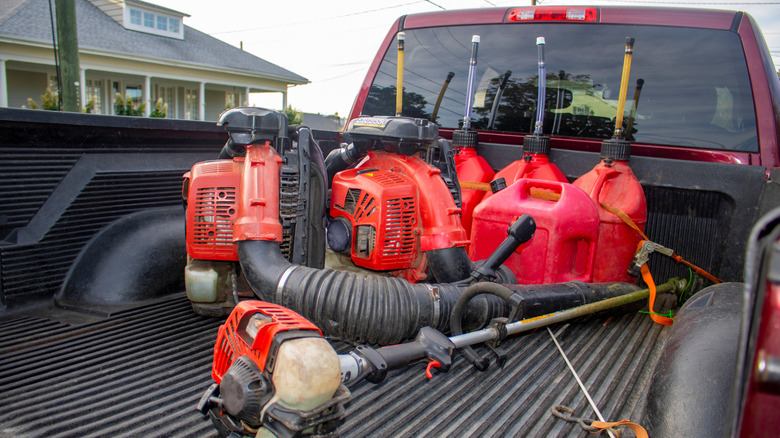How To Dispose Of Old Gasoline (The Safe Way)
Gasoline is not only essential for many cars to run, but it is also needed to operate some outdoor power equipment. From choosing the right gas for your lawnmower to using gasoline for your snow blower, it's a fairly common practice to keep a gas can in your garage to power your yard equipment. Regular gasoline typically lasts between three and six months in a gas can before degrading and becoming unusable in an engine. Once gas is in an engine, such as a lawn mower, it's only considered good for about a month unless a stabilizer is used. So, if you have leftover gas in your gas can or lawnmower that you need to dispose of, what should you do with it?
Don't throw out old gas from your lawn mower (or gas can) — instead, there are a few safe disposal options to protect the environment. First, consult your local county or city's website to find the nearest household hazardous waste (HHW) facility. These special centers are designed to handle toxic materials and can help safely dispose of or recycle materials like old gasoline. Some areas also host periodic collection days or events where residents can drop off household hazardous wastes for free — including old gasoline. Check your town's Department of Public Works or local events page for details on these events.
Other ways to properly dispose of gasoline
Since gasoline is a common household item that is actually hazardous waste, it's crucial to know all of your options to discard it if needed. Some local recycling or waste management centers may accept old gasoline, though it's important to know that not everyone does. Before packing up any old fluids, call ahead to confirm if they accept gasoline, ask about specific policies, and find out what potential fees would apply. Finally, there are a few other locations that might accept old gasoline from time to time, but it varies by location. Some local fire departments may offer a drop-off service for old gasoline, but this is not universal. Always call your local fire station before attempting to drop off any fuel, since they are not always equipped to handle it. In the same way, some auto garages may be able to accept small quantities of old fuel.
When disposing of old gasoline, always make sure to transport it in an appropriate container. This means no unapproved containers, like a soda bottle — only use an approved, heavy-duty gas can, and make sure that it's securely sealed to prevent spills and fumes. Ideally, it's best to transport the old gas in the bed of a truck or open trailer to avoid any fumes in a closed space. If you have to use a car, ensure it is well-ventilated by opening all the windows, and never transport gas in the front passenger seat. Once you're at the disposal site, remove the can from the vehicle immediately.

